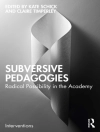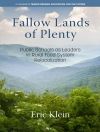Silver Award Winner, 2024 Nonfiction Book Awards
Societies are vulnerable to any number of potential disasters: earthquakes, hurricanes, infectious diseases, terrorist attacks, and many others. Even though the dangers are often clear, there is a persistent pattern of inadequate preparation and a failure to learn from experience. Before disasters, institutions pay insufficient attention to risk; in the aftermath, even when the lack of preparation led to a flawed response, the focus shifts to patching holes instead of addressing the underlying problems.
Examining twenty years of disasters from 9/11 to COVID-19, Jeff Schlegelmilch and Ellen Carlin show how flawed incentive structures make the world more vulnerable when catastrophe strikes. They explore how governments, the private sector, nonprofits, and academia behave before, during, and after crises, arguing that standard operational and business models have produced dysfunction. Catastrophic Incentives reveals troubling patterns about what does and does not matter to the institutions that are responsible for dealing with disasters. The short-termism of electoral politics and corporate decision making, the funding structure of nonprofits, and the institutional dynamics shaping academic research have all contributed to a failure to build resilience.
Offering a comprehensive and incisive look at disaster governance, Catastrophic Incentives provides timely recommendations for reimagining systems and institutions so that they are better equipped to manage twenty-first-century threats.
表中的内容
Acknowledgments
Acronyms and Abbreviations
Introduction
Part I. A Recent History of Disasters: Events, Trends and Organizational Responses
1. The Birth of the Modern Era of U.S. Disaster Management and Its Global Implications (2001)
2. A Pandemic Warning, Earthquakes, Tsunamis, Hurricane Katrina, and a Bird Flu (2002–2007)
3. An Influenza Pandemic, Earthquake in Haiti, Fukushima Disaster, and Superstorm Sandy (2008–2012)
4. Ebola, Hurricanes, Wildfires, and a Pandemic for the Ages (2013–2021)
Part II. How Organizations Respond to Disasters and Why They Behave That Way
5. Disaster Politics
6. Disaster Markets and the Private Sector
7. Disaster Nonprofits
8. Disaster Academics
Part III. In Search of Disaster Resilience
9. Humans Are Bad at Risk, and Even Worse with Uncertainty
10. Reimagining the Model
Notes
Bibliography
Index
关于作者
Jeff Schlegelmilch is a research scholar and the director of the National Center for Disaster Preparedness at the Columbia Climate School at Columbia University. He serves in advisory roles for public, private, and nonprofit organizations on issues related to disaster resilience. He is also the author of Rethinking Readiness: A Brief Guide to Twenty-First-Century Megadisasters (Columbia, 2020).Ellen Carlin is a veterinarian and policy expert specializing in biological threats. She undertakes scientific study and policy development to address infectious pathogens, especially those that move between animals and people. She has worked on national security challenges and disaster preparedness across sectors, including as senior professional staff with the U.S. House of Representatives, founding staff member of the Bipartisan Commission on Biodefense, and faculty at Georgetown University.












